CYRUS THE GREAT - Conquests of Media and Lydia
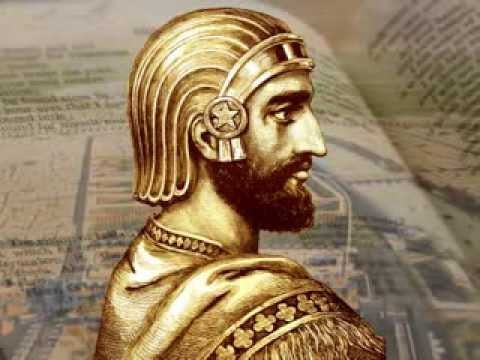
(ABOVE: Golden portrait of Cyrus II)
Cyrus was born into royalty in 590 BC. When his father Cambyses I died, Cyrus, now Cyrus II, took over as ruler of the Achaemenid dynasty in 559 BC, expanding his territory further than ever before. Not just a conqueror, Cyrus showed great mercy and tolerance to those who he brought into his growing empire, and has since gone down in history as one of the greatest and most benevolent rulers and conquerors in history, rightly earning the epithet of “the Great”.
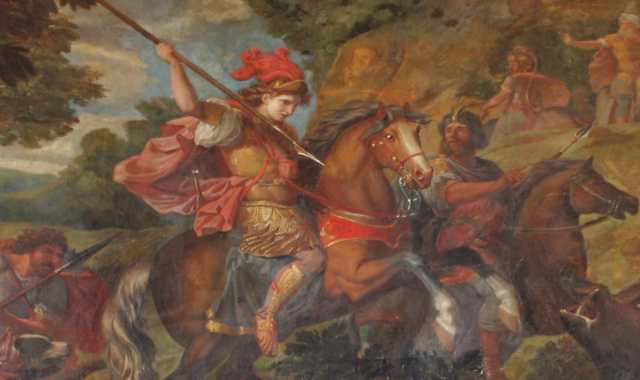
(ABOVE: "Cyrus Hunting Wild Boar" by Claude Audran the Younger, now held in the Palace of Versailles)
CONQUEST OF MEDIA AND KING ASTYAGES
In 609 BC, the Assyrian Empire was divided between the Medes and the Babylonians. Cyrus had then come to the throne of the Medes’ eastern vassal state of Persis. 10 years afterwards, Babylonian priests had recorded:
King Ishtumegu (Astyages) called up his troops and marched against Cyrus, king of Anshan, in order to me[et them in battle]. The army of Ishtumegu revolted against him and in fetters they de[livered] him to Cyrus. Cyrus [marched] against the country Agamtanu; the royal residence [he seized]; silver, gold, (other) valuables… of the country Agamtanu he took as booty and brought [them] to Anshan.
[The Nabonidus Chronicle, “Ancient Near Eastern Texts”, pg 305]
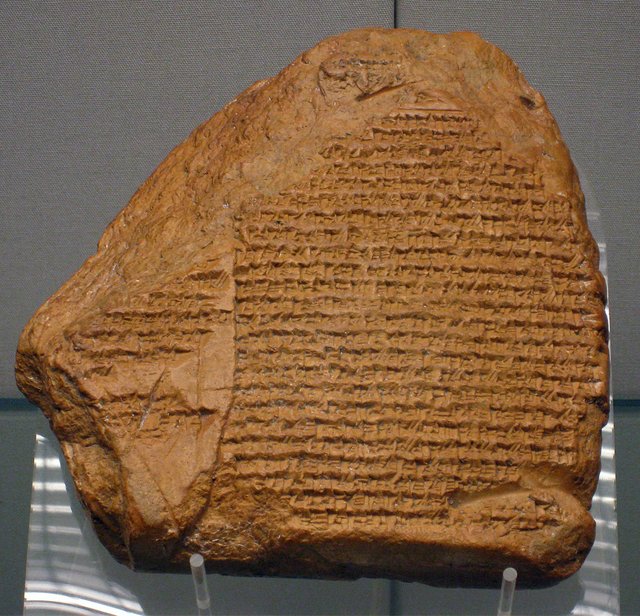
(ABOVE: The Babylonian Nabonidus Chronicle, now held in the British Museum, London)
As a superior military strategical mind, Cyrus quickly conquered the Median Empire and defeated its king Astyages in battle. He soon after realised the importance of cavalry in warfare, and soon integrated all of the Iranian tribes, known then as very skilled horsemen, into his army, giving it much more mobility in the open fields of Persia.
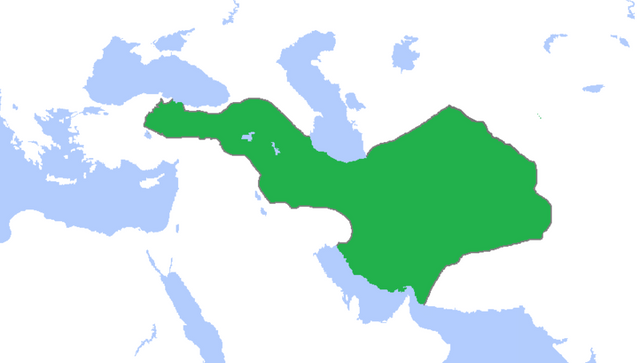
(ABOVE: The Median Empire in 559 BC, right before the conquests of Cyrus)
CONQUEST OF LYDIA AND KING CROESUS
Cyrus’s next conquests after Media was the empire of Lydia in Asia Minor, ruled by king Croesus. Croesus was known to be absurdly rich; His empire had in it vast collections of electrum, which is a metal alloy of silver and gold, of which he used to mint his own currency known as the Croeseid. This practice had been carried out by Lydian and other Greek kings before him in the 560’s BC, but were perhaps the first in history to do so. When Cyrus eventually came to conquer the Lydians and defeat Croesus in battle, his vast treasures and wealth filled Cyrus’ coffers, making the Achaemenid Empire absurdly rich as the Lydians once were. Herodotus, who wrote about the history around this period, used this victory over Croesus as proof that vast wealth never guarantees fulfilment. Croesus’ conflict with Cyrus was the first time the Greeks and the Achaemenids had come into direct contact.
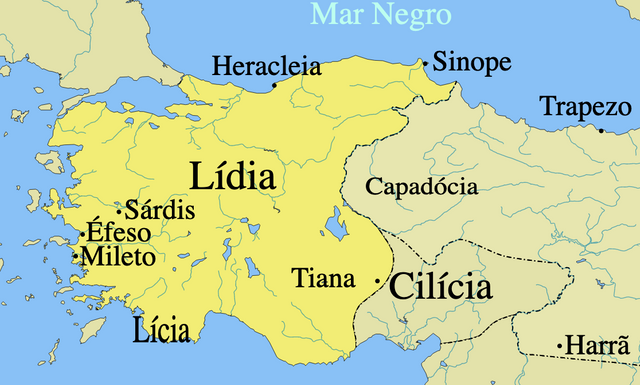
(ABOVE: The Lydian Empire in the 6th century BC)
KING CROESUS
Croesus, son of Alyattes, was born in the kingdom of Lydia. Succeeding his father Alyattes at the age of 35, he ruled all peoples who lived west of the Halys River, which ran south from Syria and Paphlagonia and north into the Black Sea. Croesus was the first non-Greek known to subject Greeks to pay tributes, although he also made alliances with some of them. He demanded tributes from Aeolians, Asian Dorians and Ionians, while allying himself with the Spartans. Prior to Croesus’ reign, the Greeks under his rule were free.
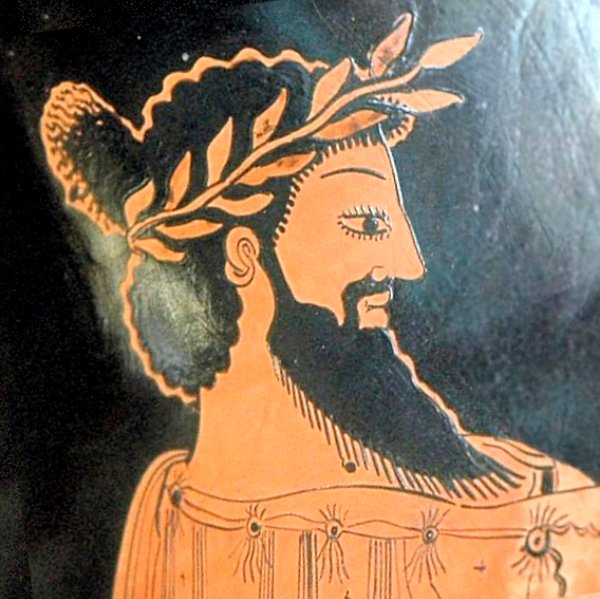
(ABOVE: Attic red-figure amphora portrait of King Croesus, painted c.500-490 BC)
GYGES
Croesus was the descendant of Gyges of the Myrmnadae Clan. This clan seized power in Lydia after Gyges was ordered by the then-king Candaules to watch Candaules’ wife, Nyssia, undress at night. Hiding, Gyges watched Nyssia undress, but was told by her later on that she caught him watching her. Nyssia then told him that this would be punishable by death, but gave him the option of killing Candaules instead and claiming the throne for himself. Gyges killed Candaules and took the throne for himself, and the Myrmnadae clan thus ruled Lydia.
(ABOVE: "Candaules, King of Lydia, Shews his Wife by Stealth to Gyges, One of his Ministers, as She Goes to Bed" by William Etty, painted 1830, now in the Tate Gallery, U.K.)
EXPANSION OF LYDIA
First of the neighbouring Greeks to be attacked by Croesus were the Ephesians - that is, the people from Ephesus. Following this, he went on to attack the Aeolians and Ionians, attacking all of their cities one after the other, giving different levels of plausible reasonings for doing so each time. Following his subjugation of the Asiatic Greeks, he planned to build a fleet to attack the Aegean islands, but when he learnt that the Aegean Greeks had too funded large forces to defend against him, he cancelled his plans, soon after making a peace agreement with those Greeks. Aside from the Clinicians and Lycians, all peoples living in mainland Asia Minor west of the Halys River were now under Croesus’ domain.
MAKING ALLIES
The growing power of Persia in the east caused Croesus much concern. His thoughts immediately turned to finding a way to slow the growing power of Persia before it became too mighty for his empire. His plan was to send envoys to different oracles, located at Abae in Phocis, Amon in Libya, Amphiaraus, Branchidae in Miletus, Dodona, Trophonius and the famous oracle at Delphi. The envoys were ordered to track the amount of days from when they left Sardis, and on the hundredth day they were ordered to ask the oracle and ask them what the Lydian king was doing, writing down the response and returning it to king Croesus. All responses are unknown to us, except Delphi’s:
I know the number of grains of sand and the extent of the sea;
I understand the deaf-mute and hear the words of the dumb.
My senses detect the smell of tough-shelled tortoise
Cooked in bronze together, with the flesh of lambs;
Beneath it lies bronze, and bronze covers it.
Only this response took Croesus’ fancy in particular. He offered up a prayer and accepted it; to him, only the oracle at Delphi was the true oracle. In response to it, he did what he hoped would be unthinkable and cut up a tortoise and some mutton, cooking them in a bronze pot topped with a bronze lid. He then offered up 3,000 of every sort of sacrificial animal, made a large pyre topped with silver and gold, ornate cups, purple tunics and cloaks, and burnt them all as an offering, assuming he would stand better odds of winning the god’s favour by doing so. After telling the Lydian people to offer up and sacrifice what they could too, he had vast quantities of gold melted down and made into 117 ingots and a large lion statue. These items were all sent to Delphi, along with silver and gold bowls and jars. Ordering his men once again to take these offerings to the various oracles, he also asked of them to ask the oracles whether to make allies of any other outside forces, and if he should wage war on the Persians. The responses came back the same: they were told that if Croesus declared war on Persia, he would destroy a great empire, also advising him to ally with a powerful Greek state. Croesus was convinced that it was he who would be the one to “destroy a great and powerful empire”.
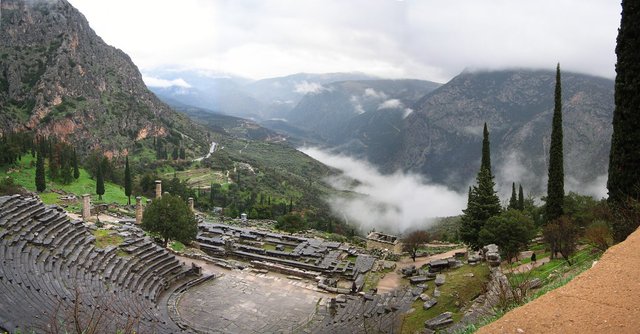
(ABOVE: Ruins of Delphi, Greece)
He chose Delphi as his state to ally with, through believing the oracle there to be the wisest of all oracles and because it was that oracle that already provided him with the answers he sought. He sent gold offerings to Delphi, who in return offered them precedence when consulting their oracle, no taxes, front-row festival seats and the right for any Lydian to become a Delphic citizen. Pleased with how things were going thus far, he sent envoys to ask the oracle of Delphi one more question: whether his reign would last a while or not. The response was as follows:
When a mule becomes Persian king, it is time,
Tender-footed Lydian, for you to flee beside the pebbly Hermus
Without delay, and without worrying about cowardice.
Croesus, certain a mule could never replace a man as king of Persia, was certain that he and his descendants rule would last forever. He sent gifts to Sparta too, certain that they, as well as the Athenians, were the most powerful of the Greeks and thus would make the best ally for him against Persia. Bringing gifts with them, Croesus’ envoys addressed the Spartans as they had been told to:
These are the words we bring from Croesus, king of the Lydians and other peoples: “Lacedaemonians, the oracle advised me to make the Greek my ally and now I have learnt that you are the leading Greek people. You, therefore, are the ones to whom I am extending the invitation the oracle recommended. I want to be on good terms with you and to enter into an alliance with you without treachery or deceit.”
Having already heard of Delphi’s responses to Croesus, the Spartans swore an oath of alliance to Lydia. Sparta was already partly in debt to Croesus, who had given them a gold statue they wanted to pay for for free. Sparta also sent a heavily decorated bronze bowl to Croesus as a thank you, but it never arrived; either the Spartan sailors taking it there sent it to Samos instead once they learnt that Croesus had been defeated by Cyrus, or the people of Samos simply stole it from the Spartans. Either way, the bowl ended up on Samos and dedicated it to their temple of Hera.
ATTACKING CYRUS - With his misunderstanding of the oracle, Croesus invaded neighbouring Cappadocia, assuming he would depose Cyrus from there and cause the downfall of the Achaemenid Empire. Sandanis, a Lydian always considered clever by many at the time, came up to Croesus while he was preparing for his attack. Sandanis explained that, due to the Persians’ rugged homeland and simple lifestyle and diet mostly stripped of luxuries compared to their own more lavish lifestyle, there would be far more to lose if Cyrus defeated Croesus than there would be to gain should Croesus defeat Cyrus. While this speech went in no way to convince Croesus to reevaluate his decision, it was true. On top of wanting more land, Croesus attacked Cappadocia because of his misled faith in the oracle. Croesus was also the brother-in-law of the former king of Media, Astyages, who Cyrus was currently holding as a captive, so there was already a personal feud between the two men. It was this family tie that first led Croesus to ask the oracles whether he should attack Cyrus or not.
BATTLE OF PTERIA - Once Croesus had crossed the Halys River, he found himself in Pteria, a highly impenetrable region in Cappadocia. Establishing a camp there, Croesus proceeded to destroy nearby Cappadocian farmlands, going on to capture Pteria’s capital and enslaved its citizens, overrunning its outer populations and forcing them to flee their homelands. Hearing of this, Cyrus gathered his troops to meet Croesus, conscripting anyone he could along the way and attempting to incite unrest in the Ionians to revolt against Croesus and slow things down for him, but the Ionians didn’t fall for this. Meeting Croesus at Pteria, Cyrus, with a much larger army, placed his troops opposite Croesus’ camp. A vicious fight followed, both sides taking heavy casualties, and the fight was concluded by nighttime. Neither army won the day.
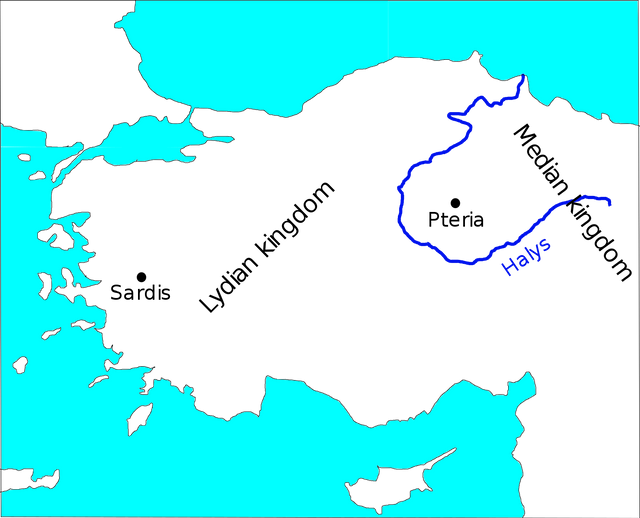
(ABOVE: Locations of Pteria and Sardis in Asia Minor)
Croesus blamed his lack of a victory on him being heavily outnumbered, and when Cyrus did not come forth to meet him on the field the following day, Croesus withdrew his forces all the way back to Sardis. Croesus had already made an alliances with Pharaoh Amasis of Egypt, preceding his Spartan alliance, and with Labynetus of Babylon. He told his allies that he wanted them to provide military aid for him, wait out the winter with his own army and then attack the Persians once spring came around. Once he returned to Sardis, Croesus dispatched his envoys to his allies and disbanded the foreign elements of his own army; he didn't expected Cyrus would ever engage him again since their forces drew at Pteria. Once Cyrus got word of Croesus disbanding much of his own forces, he marched without hesitation towards Sardis, before the Lydian troops could muster together again for another time. Although this put Croesus into a position he had not planned to be in, he nevertheless marched his forces out to meet Cyrus.
BATTLE OF THYMBRA - Both armies met on the plains of Thymbra outside the walls of Sardis. The plains themselves were bare and rather broad, with several rivers flowing straight through it. As Cyrus noticed the Lydians forming up for battle on this plain, he realised that the Lydian cavalry would be a threat to his men; Lydians were known to be some of the most warlike of the Asian Greeks, and commonly wielded long spears into battle and being excellent cavalrymen. A Median battle advisor, Harpagus, noticed this too and advised Cyrus to adopt the following formation: He told Cyrus to unload his baggage camels and have men mount them instead with full cavalry weapons and armour. When ready, the camel riders were ordered to attack Croesus’ cavalry wings, with the rest of the Persian army following behind them, with horse cavalry at the rear. With all troops lined in position, they were ordered to kill all Lydians in front of them, to show no mercy against everyone except Croesus - he was ordered to be captured even if he resisted. The camels were positioned to confront the Lydian cavalry, because horses are afraid of camels due to the smell and sight of them. Without his cavalry advantage which Cyrus feared the most, Croesus’ army wouldn’t amount to much else. Once the fight began, the horses, as planned, turn and fled once they came into view of the Persian camels, but the riders instead just dismounted to fight on foot. Heavy losses ensued on either side of the fight here, until the Lydians were forced back to the walls of Sardis. Trapped behind their own walls, the Persians begun to besiege Sardis.
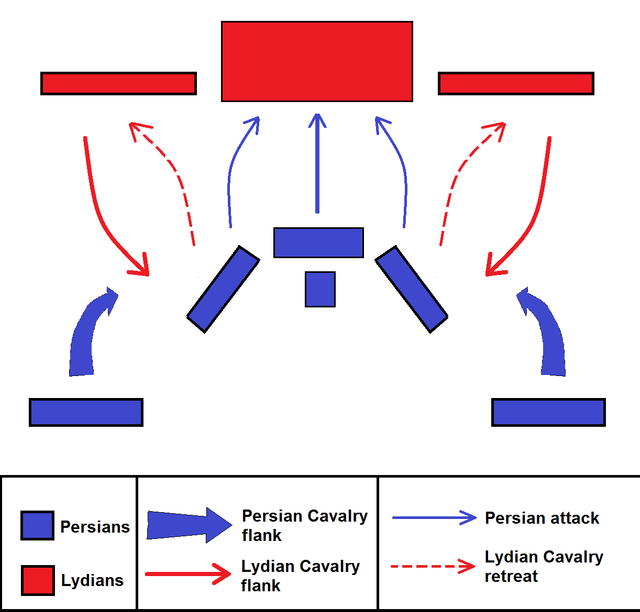
(ABOVE: Battle formations of Cyrus and Croesus at Thymbra, December 547 BC)
SIEGE OF SARDIS - Further envoys were sent out to Croesus’ numerous allies, this time asking for immediate aid, instead of waiting for 4 months time as they had previously requested. Despite the Spartans being held up in a quarrel with their neighbours at Argos, the Spartans accepted the call. But when a second message came to Sparta not long after detailing that Croesus had been captured, the aid from Sparta was called off and their fleet was disbanded.
On day 14 of the siege of Sardis, Cyrus sent forth riders to the rest of his army, saying that whichever man first scaled the city walls would be highly rewarded. While it ultimately led to no success, Hyroeades, a Mardian, attempted to scale the walls nearby to the city’s acropolis where there was no guard posted due to the acropolis’ natural steepness. Hyroeades had noticed the day before someone climb down this section of the wall to retrieve their helmet, and so led a detachment of Persian troops up this section of the wall. It was this ascent up this section of the wall that ultimately caused the city to fall to, and be sacked by, the Persians.
CROESUS’ CAPTURE - Sardis had been captured, and the oracle’s predictions came true: a great empire did indeed fall - Croesus’s. When Croesus was taken to Cyrus, the Persian king had a funeral pyre constructed for him and 14 other Lydian followers to be burnt on. Cyrus did this either as an offering for a god, or he wanted to fulfil a vow, or maybe he did this knowing Croesus was god-fearing and wanted to see if any divine intervention in his death would occur.
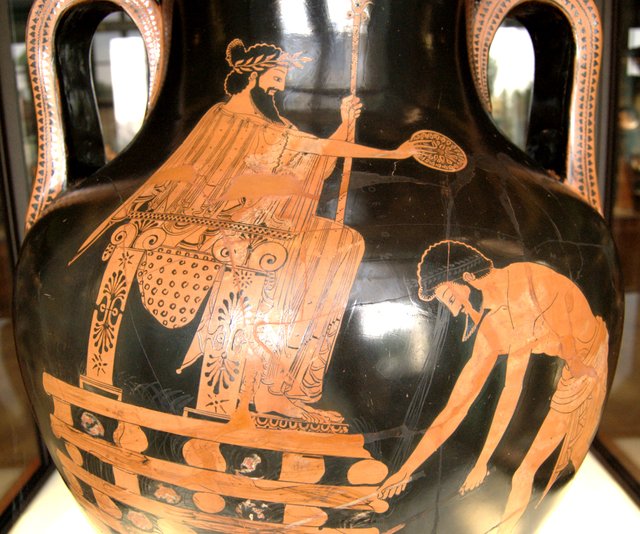
(ABOVE: "Croesus on the Pyre", Attic red-figure amphora, now held in the Louvre, Paris)
As the story goes, it was up this funeral pyre that Croesus remembered Solon of Athens. Solon told him, despite Croesus’ vast wealth and luxury, that no one was truly happy until death, and this inspired Croesus to think of how divinely inspired Solon actually was for saying this. This broke his silence atop the pyre as he shouted “Solon” aloud 3 times. Hearing this, Cyrus asked his translators to ask what he was saying, to which he eventually replied, “Someone whom I would give a fortune to have every ruler in the world meet”, telling the Persians of the meeting he had with Solon before and everything that he had said to him. When relayed to Cyrus, it made him realise that he was burning a fellow human being, one who was once as rich and powerful as he was. Afraid of retribution and the lack of any certainty in any human life, he ordered his men to put the flames out and free Croesus and his men. But the fire by then was out of control.
Go and check out my blog post on Solon and Croesus's meeting: https://steemit.com/history/@oo7harv/solon-part-ii-his-travels-and-return-to-athens
Noticing Cyrus’ change of heart, and noticing it was too late to put out the flames, Croesus called instead to Apollo, “If any gift of mine has pleased you, come now and rescue me from this danger.” It was at that moment that clouds gathered, and heavy rain fell down on the field and put out the flames. This made Cyrus see Croesus as someone protected by the gods themselves. The two soon after spoke. Cyrus asked Croesus who it was that inspired him to attack the Persians, to which Croesus replied, “My lord, it was my doing. You have gained and I have lost from it. But responsibility lies with the god of the Greeks who encouraged me to make war on you. After all, no one is stupid enough to prefer war to peace; in peace sons bury their fathers and in war fathers bury their sons. However, I suppose the god must have wanted this to happen.” Cyrus untied him from the pyre and had him sit nearby, impressed by his demeanour. When he saw the Persian forces looting the city, he asked Cyrus what they were doing looting so eagerly the property that was now theirs. “Since the gods have given me to you as your slave, I consider it my duty to pass on to you any special insights I have. Persians are naturally aggressive, and they are not use to possessions. So if you just stand by and let them loot and keep all this valuable property, you should expect the one who gets hold of the most to initiate a coup against you. However I have a suggestion to make, which you might like. Put men from your personal guard on sentry duty at all the city gates and have them take away the spoils from those who are trying to bring them out of the city, on the pretext that a tenth of it has to be offered to Zeus. Under these circumstances, you won’t be hated for the forcible removal of their property; they will appreciate the rightness of what you’re doing and willingly hand it over."
Highly pleased with this idea, Cyrus ordered his men to put Croesus’ plan into action. He told Croesus, “Your royal background, Croesus, has not affected your ability to do good deeds and offer sound advice. Whatever you would like me to give you will be yours straight away; you have only to ask.”
Croesus responded: “Master, nothing would give me more pleasure than to be allowed to send these shackles of mine to the god of the Greeks, whom I revered more than any other god, and to ask him if it is his normal practice to trick his benefactors.” Asking Croesus what he thought the god had done wrong to him, Croesus told Cyrus of his previously made plans to send envoys to all of the oracles to ask for aid in defeating Cyrus. Laughing, Cyrus said, “Yes, of course you have my permission, Croesus, and the same goes for future requests of yours too.”
CONQUEST OF IONIA + AEOLIA
Following the Persian conquest of Lydia, the immediate reaction from the Aeolians and Ionians was to send emissaries to Sardis, where Cyrus was currently residing, and ask that their terms of subjugation be the same as they had been for Croesus. Cyrus proceeded to tell them a story of a pipe-player who tried to use his pipe to lure fish out of the water, claiming that they only started dancing to it once they were caught in a net and brought out of the water. Comparing the Greeks to the fish, Cyrus told them that they only wanted peaceful subjugation now that he had victory over Lydia, since it was Cyrus that previously offered them much to rise up against Croesus and Lydia. When this message was received, the Ionians built defensive walls and fortifications and met together in the Panionium. Together, the Ionians asked the Spartans for aid against Cyrus. The Spartans were never convinced to help them, but did send a detachment of men in a ship to keep an eye on what was about to go on in Ionia, where they delivered a message to Cyrus, asking him not to harm any cities on Greek soil, as the Spartans wouldn’t tolerate it.
CYRUS LEAVES SARDIS - Cyrus trusted the city of Sardis to a Persian called Tabalus, and put a Lydian in charge of tax collection. Cyrus then marched his forces back to Ecbatana, taking Croesus with him. His concern for the Ionians was outweighed by the Babylonians, Egyptians, Bactrians and the Sacae, who were all causing difficulties for him. While he would send another commander to Ionia, he would personally deal with these other nations. Once Cyrus was away from Sardis, Pactyes led a Lydian uprising against Tabalus. With all the gold he now held from taxes and Croesus in Sardis, Pactyes marched down to the coast, hired mercenaries and persuaded the coastal peoples to join his army. He then marched against Sardis and trapped Tabalus in the acropolis, laying siege to him there.
When news of this reached Cyrus, he asked Croesus if it would just be easiest and best to turn around, defeat them and have them enslaved. Fearing this would drive his people out of Sardis, Croesus advised Cyrus, “My lord, what you’ve said is perfectly reasonable, but you shouldn’t be motivated entirely by anger. Don’t turn an ancient city into an empty ruin when it wasn’t to blame for the earlier situation and isn’t now either. I was responsible for the first incident and on my head fell the consequences.” Croesus wanted his people better dealt with than being enslaved, and he knew that if he didn’t interject then he wouldn’t be able to change Cyrus’s mind. He was also worried that if they were enslaved, the Lydians would rise up against the Persians and be completely destroyed by them as a result. Calming down, Cyrus took Croesus’s advice and made sure the citizens of the city were not allowed to own weapons, they had to wear tunics underneath their coats and slippers on their feet, they were all to learn the harp and cithara and they had to raise their sons to be retailers. His thinking here was that the people would “become women instead of men”, thus putting Sardis under no threat of revolt. Cyrus sent for a Mede named Mazares to repeat Croesus’ ideas to the Lydians, as well as to sell everyone into slavery who joined in on the Lydian attack on Sardis, except for Pactyes, who was to be brought to Cyrus alive, which eventually he was. Upon telling his men to raid the coast and take what they wanted, Mazares soon after died of illness.
Mazares was succeeded by Harpagus. Once put in command by Cyrus, Harpagus marched on Ionia and made use of earthworks to capture several towns. He would pin the enemy in the towns and then build earth-made walls to slowly starve the inhabitants and then take the towns over.
--
SOURCES:
• Herodotus's "The Histories"
• Oswyn Murray's "Early Greece"
• Robin Osborne's "Greece in the Making, 1200 - 479 BC"
• Philip Parker's "World History"
• National Geographic's "The Most Influential Figures of Ancient History"
• Nic Field's "Thermopylae 480 BC"
All images used are licence-free
--
This is the second part in many blogs to come on the Achaemenid Empire.
Go and check out my previous blog on Persian history for more!
https://steemit.com/hive-133974/@oo7harv/the-persian-empire-history-s-first-superpower
My next blog on Cyrus's conquests of Babylon and his ultimate demise is out now:
https://steemit.com/hive-133974/@oo7harv/cyrus-the-great-2-conquest-of-babylon-and-his-downfall
Any and all feedback is welcome.
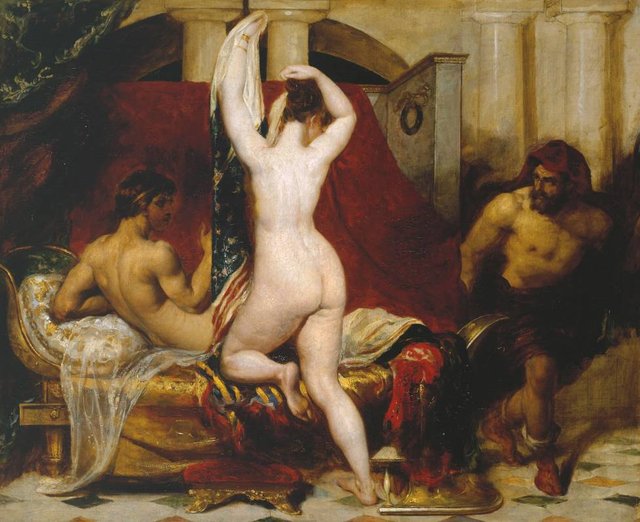
Roman Rising:
Was this before the rise of the Roman Empire which expanded for like a thousand years and started falling around 500 AD? I read a bit about Cyrus when I was studying the Bible.
Vikings
Interesting to see how the world changed so much from the time of Cyrus to the time of the Vikings television series I'm watching, the History Channel, six seasons, roughly around 800 AD as it shows bits and pieces of this new religion called Islam at that time. England was still split into smaller kingdoms.
Mentioning the Romans
They mention the Roman Empire in the show or the remnants of it but they don't mention the former Persian or Babylonian empires. I guess mentioning the most recent empire, the Roman empire, is enough, and it's possible that the Vikings were not totally aware of all of ancient history beyond their own lands.
To Be Continued
The show covers bits and pieces of like Africa, Italy, and also England, that is on top of whatever lands the Vikings already had. It mentions China and I haven't seen the 6th and final season yet.
Cyrus the Great lived during the early to mid 500's BC.
The Roman Republic was formed in 509 BC, and the Roman EMPIRE was formed in 27 BC.
I'll be honest: vikings aren't something I've looked too much into. One thing I do know about them though is that some were hired by Byzantine Emperors to serve as their elite Varangian bodyguard units. (The Byzantine Empire is the name used by later historians to describe the Eastern Roman Empire, which lasted from 395-1453 AD.)
I don't know how much the vikings, coming from Scandinavia, would have known about a mainland European empire that collapsed roughly 4 centuries before they arrived in Britain, so I'd say it's unlikely that they'd even know the name "Babylon" at all.
I've not seen the show, but you've peeked my interest - I'll have to stay tuned! :)
The show is similar to Game of Thrones but grounded in history. But I've not taken the time yet to see accurate and aligned with history the Vikings might be. I compare it to Game of Thrones in that the main star of the television show, Ragnar, has at least six boys. One son killed the other son who was mocking him. Another son dies in a battle. The other four sons end up battling each other or sometimes working together against the other sons. In the show, different people become king of the different places. They die and then the sons or other people become king, similar to what you see in Game of Thrones but without the dragons. But they do reference dragons in the same breath that they mention the myth of Thor and other gods.
Not seen GOT either tbh :) but definitely sounds like my kind of show!
If you like Batman, one show on Fox I enjoyed watching was Gotham.
If you like Batman,
One show on Fox I enjoyed
Watching was Gotham.
- joeyarnoldvn
I'm a bot. I detect haiku.
Not a HUGE superhero fan, but I do like me some batman :)
Did mean to give that show a watch too, looks good
Nice.
The Resteem's much appreciated! :)
More Persian history blogs are up on the History Community if you're interested :)
https://steemit.com/created/hive-133974
Great.